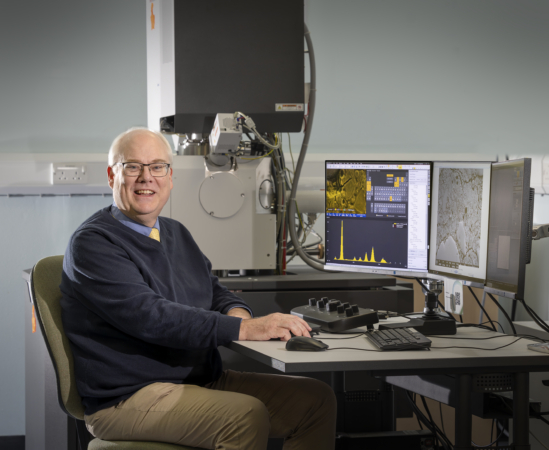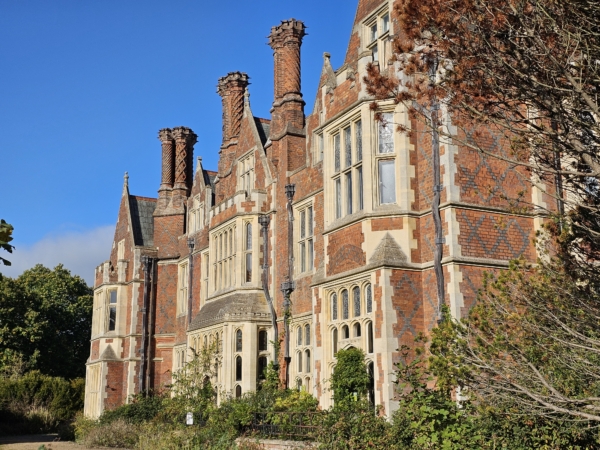Mathematics and national defence: an unlikely combination
Over the years, AWE has built strong and enduring relationships with external institutions that allow collaboration between academia and industry. By leveraging such national expertise, AWE can develop better capabilities and methods to protect the UK.
One way of achieving this is through AWE’s Centres of Excellence across the UK, which aim to foster closer links with academia and push the boundaries of what is possible. Currently there are eight Centres, with one based out of the University of Manchester.
In 2019, materials scientists from AWE and the University’s Department of Mathematics came together to form The University of Manchester Materials Modelling Research Hub. Phil Monks, AWE Materials Scientist and secondee to the University, tells us more about the Centre’s work and importance of mathematics in national defence and security.
Mathematical excellence
Complex mathematics may not be as obviously linked to national defence as science and engineering, but it plays a vital role in keeping the UK safe.
The Materials Modelling Centre specialises in modelling materials under different environments. Phil works with researchers to develop advanced mathematical and numerical methods that can determine how materials behave in often extreme conditions, which helps AWE support the safety, reliability and performance of nuclear warheads throughout their lifecycle.
He says, “Our work focusses on applying various mathematical methods to real-world industrial materials problems, and I’m a firm believer that developing these kinds of interactions is integral to our future success. We help solve AWE’s technical challenges while demonstrating the impact of the exciting research going on at Manchester – we get to work on a wide variety of interesting problems.”
Supporting the future of STEM
The work being done by Phil and others at the Materials Modelling Research Hub also supports the development of the next generation of scientists.
“It’s great to work with students and give them a taste of what it’s like to work in an industrial research environment. Hopefully they feel stimulated by the work they do with us, and the skills they develop serve them well throughout their careers. Who knows, maybe they’ll come and work with AWE as full-time employees somewhere down the line – and go on to inspire another generation of scientists to do great things”, reflects Phil.
Building long-lasting relationships
Building these connections takes time as the two institutions work together to achieve mutual goals. Phil reflects on the welcoming environment fostered by the University of Manchester only further enabling effective and meaningful collaboration:
“A key focus of my role is communication between AWE and Manchester, helping to break down those language barriers that sometimes crop up between different disciplines, and it’s been incredibly valuable to have those conversations with different people and groups. It’s the back-and-forth, the interplay between the materials and the maths communities, that leads to a real wealth of exciting ideas and I’m really looking forward to building on that in the future.”
“The people at Manchester have been wonderful in supporting me during my time here, helping me to meet new people, learn new techniques, and get to grips with research areas entirely new to me.”
Find out more about the research currently going on within the AWE-Manchester collaboration.



